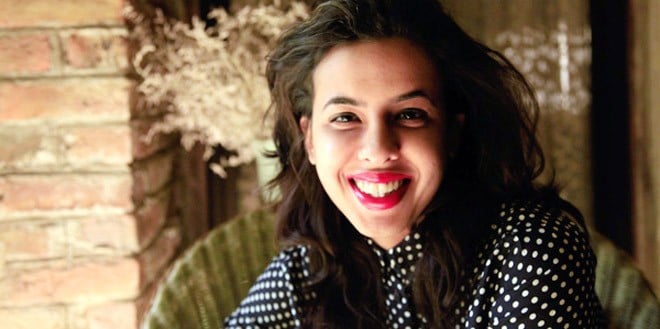

I recently had the opportunity to attend the Lahore Literary Festival, and managed to snag an author-signed copy of Karachi, You’re Killing Me! What a fun read! The debut novel of Karachi-based journalist Saba Imtiaz, it is a fast-paced book that keeps the reader running along with the protagonist, Ayesha, till the very end. There isn’t a single page where the rhythm of Ayesha’s life slows down. Which is just as well, considering Ayesha’s choice of career as an investigative journalist living in Karachi, the most dichotomised of Pakistani cities.
Ayesha, an independent and ambitious woman of today, is the daughter of a non-authoritative, middleclass man, whose favourite beti is apparently the pet cat. Always in pursuit of the perfect story whose coverage will catapult her into the world of international journalism and out of her mundane current job, Ayesha is gutsier than most of her male colleagues, daring to step into gang-marcated areas of her city that most Karachiites would gladly bypass.
Her intense desire to somehow, anyhow, escape her humdrum life seems to be fuelled as much by her wish to win international acclaim as well as her inability, or maybe refusal, to fit neatly into a category of the social circus surrounding her. Her non-elitist attitude, which is surprising considering the people she hobnobs with, helps her interact with a press club spy as easily as with Farrah, the snooty model.
Even though Ayesha has this apparent bonhomie with everybody she meets, wherever she meets them, she never quite gels into any social group. She is neither a glam career-woman like her best friend Zara nor a pretty bimbo like any of her friend Saad’s girlfriends.
Much like the rickshaws and taxis that are her mode of transportation, Ayesha’s life is an unpredictable rollercoaster ride punctuated by speed bumps like betrayal and professional stagnancy. The swift pace of the novel works particularly well as Ayesha tries to maintain some balance in juggling personal and professional commitments. The downside to this, though, is that there is never enough time for the reader to get a deeper understanding of the protagonist’s character.
Though based in Karachi and utilising the distinctly Pakistani quandaries of political instability and terrorist-induced chaos, Saba Imtiaz manages to weave a story that is as cosmopolitan in essence as it is Pakistani. Take the kurtas and the rickshaws out of the equation, and the novel could be about any woman struggling to carve a niche in any cosmopolitan city around the globe. Like ambitious young professionals the world over, Ayesha is almost always in need of alcohol to provide some much-needed dutch-courage and escapism from the tight-rope act she calls her life.
Inspite of being generally fatigued, and broke to boot, Ayesha constantly has to try and maintain the image of a savvy professional. The dilemma of successfully dealing with the pressure of the global ‘see and be seen’ affliction is repeatedly made evident through her perpetual dismay at the contents, or lack-thereof, of her wardrobe. The universality of Ayesha’s predicaments is undeniable. What is surprising though, is the matter of fact manner in which the novel deals with the easy availability of alcohol and the evident acceptance of casual sex in the Islamic Republic of Pakistan. This portrayal of urban Pakistani society might come across as offensive to the more conservative reader for whom such open acknowledgment of drinking and dating might be a bit incomprehensible.
Resonating like a continual hum in the background score of our heroine’s life is her failure to find the man of her dreams amongst Karachi’s male population. But fortunately, the tempo of the first-person narrative never allows Ayesha to wallow in self-pity and loathing for too long, and allows the novel to retain its sarcastic tone. Her paradoxical attitudes of fearlessness while reporting and cowardliness when dealing with bullies is a failing that lends a tragicomic air to the whole story.
In a city troubled by political and religious volatility, Saba Imtiaz unashamedly satirises each character Ayesha interacts with. This farcical and frivolous portrayal of a city divided by multiple identities is aided by the exaggerated stereotypes in Ayesha’s life, whether it is her rich and incompetent editor; the pot-bellied and lecherous extremist; or the Chanel no.5 engulfed society aunty.
However, like a true Karachiite, the pace of Ayesha’s life is not slowed by the unrest surrounding her. Bomb blasts are described with the same nonchalance as lit fests and fashion shows. The novel manages to stay out of the serious (read: pedantic) book category by its refusal to take any upheaval, personal and socio-political, too seriously.
All the threads weaving, sometimes disjointedly, through the plot finally converge when Ayesha achieves her elusive professional and personal happiness in true filmi style. And keeping in sync with Ayesha’s identity as an independent woman, Saba Imtiaz resolves the love angle after her professional capabilities are applauded. Interesting to read, Karachi, You’re Killing Me! would make an excellent light-hearted movie.